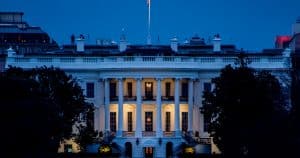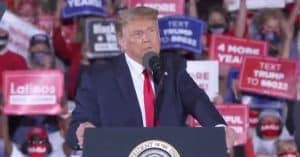SCOTUS schedules arguments in cases that could overturn Chevron doctrine
In what could set the stage for the reversal of decades of deference to administrative agencies, the U.S. Supreme Court has set for January oral arguments in two key cases, Relentless, Inc. v. Department of Commerce and Loper Bright Enterprises v. Raimondo, as the Epoch Times reports.
At stake is the much-discussed and highly controversial Chevron doctrine, which conservatives believe has worked to unduly expand the powers of the administrative apparatus of the federal government.
Pivotal ruling possible
The two cases to be heard in January started as challenges to an administrative rule at the federal level that forces entities within the fishing industry to cover the cost of observers tasked with monitoring compliance with fishery management regulations, as SCOTUSblog explains.
However, the cases have since taken on a broader significance, in that they have prompted the high court to formally consider whether to reverse or limit the 1984 precedent from the case of Chevron v. Natural Resources Defense Council.
In that case, the justices decided that if a federal statute is ambiguous in its terms, courts are required to afford deference to an administrative agency's interpretation of the law, provided it is deemed reasonable.
From that point on, the aforementioned proposition has been referred to as the Chevron doctrine, and it has courted a great deal of controversy in the intervening years.
Chevron and its notable detractors
Given the potential for the high court to bring an end to the administrative deference resulting from its Chevron decision, conservatives are awaiting January's arguments and the panel's subsequent ruling with great anticipation.
Paul Clement, former U.S. solicitor general during the George W. Bush years, said recently, “I don't want to say that Chevron is responsible for all the ills of the modern administrative state, just most of them.”
Indeed, several of the sitting justices have also given voice to their own doubts about the wisdom of the Chevron doctrine, with Clarence Thomas declaring in a 2015 opinion that the thrust of the ruling “wrests from courts the ultimately interpretive authority to 'say what the law is'” and delivers it to the executive branch.
Perhaps less forceful in his disdain than Thomas, Justice Samuel Alito once lamented that Chevron resulted in a ''massive shift of lawmaking from the elected representatives of the people to unelected bureaucrats.”
Justice Brett Kavanaugh has also weighed in on the broader issues surrounding Chevron, writing, while still a judge on the U.S. Court of Appeals for the D.C. Circuit, that courts are required to “preserve the separation of powers” and keep a tight check on “expansive and aggressive assertions of executive authority.”
Though the Biden administration has cautioned that a reversal of Chevron is not in the best interest of the country and would be “convulsive” in its effect, given the current composition of the court and the fact that at least four justices voted to grant certiorari on the explicit question of whether to overrule or clarify the doctrine's thrust, it appears that a landmark decision could well be in the offing.




